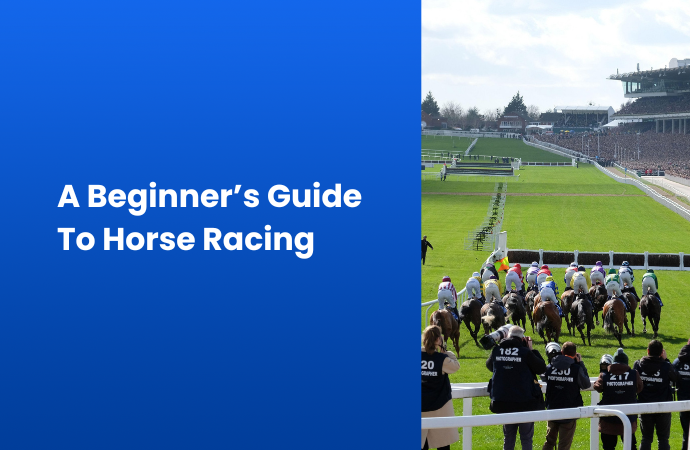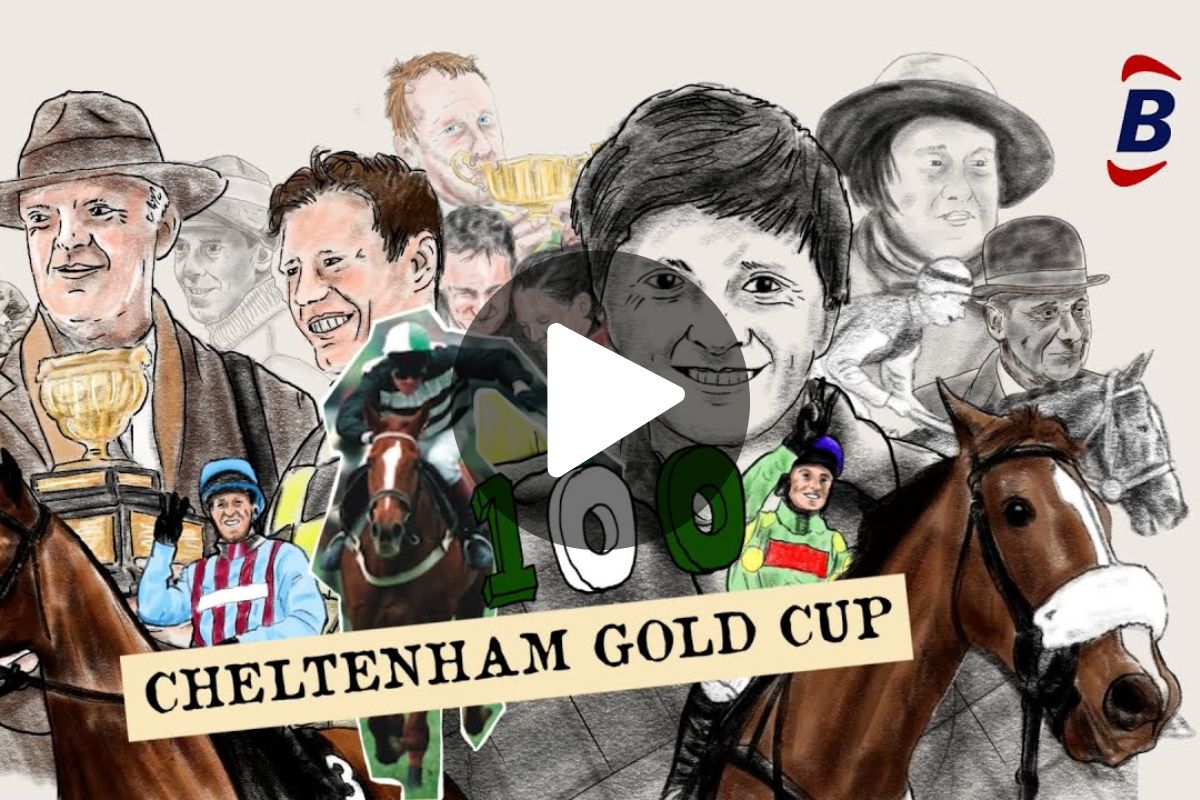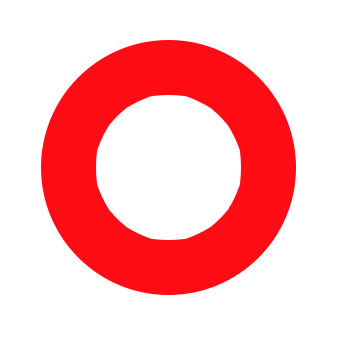A Beginner's Guide To Horse Racing
Types of Horse Racing
There are two popular types of horse racing. These are Flat Racing and National Hunt Racing.
Flat Racing
Flat Racing, as the name suggests, refers to horse races that take place over flat tracks. Horses do not have to jump any obstacles in flat races.
The shortest flat races are run over a distance of 5 furlongs which is approximately 1 kilometre. The longest flat race is run over a distance of a little over 2 miles and 5 furlongs (4,355 metres).
Flat racing is the most popular version of horse racing worldwide.
National Hunt Racing
National Hunt Racing, also known as Jumps Racing, refers to horse races in which horses have to jump over obstacles. There are 3 types of National Hunt races.
National Hunt Flat
National Hunt Flat races are commonly referred to as ‘bumper’ races. This is the only type of National Hunt race in which horses don’t jump over obstacles. The purpose of bumper races is to give horses experience racing around National Hunt racecourses and prepare them for a future in hurdles and steeplechase races.
Hurdle
Hurdle races are horse races in which horses jump over obstacles called hurdles. Hurdles are a minimum of 3 feet and 6 inches in height and are made up of small branches. Hurdle races have a minimum of 8 hurdles and are run over distances between 2 miles (3.2 kilometres) and 4½ miles (7.2 kilometres).
Horses that are new to jumping over obstacles will first take part in races called Novices’ Hurdles. These are races generally run by inexperienced horses that have not won a Hurdle race in the previous season. The purpose of these races is to allow horses to improve their jumping technique before they take on more experienced horses.
Steeplechase
Steeplechase races are horse races in which horses jump over obstacles called fences. Steeplechase races are commonly referred to as chase races.
The fences that horses have to jump over in chase races are taller than hurdles with a minimum height of 4 feet and 6 inches. They are also less flexible than hurdles which means that horses racing in steeplechase races have to be good at jumping or they risk falling, injury or unseating their rider.
Generally, horses competing in steeplechase races will have previously jumped over hurdles and then competed in Novices’ Steeplechase races. Novices’ Steeplechase races are run between horses that have not competed in a steeplechase race before or horses that have never won a Novices’ Steeplechase race before. The purpose of Novices’ Steeplechase races is to allow horses to improve their jumping technique over fences before they compete with more experienced horses.
Steeplechase races are generally seen as the most prestigious type of races in National Hunt racing. As a result, the prize money on offer is generally higher when compared to Hurdle races and National Hunt Flat races.
Horse Racing Glossary
Here is a list of the most common terms that you will hear in horse racing and what they mean.
Betting Odds: The ratio for how much you will win if the horse you bet on wins the race. For example, if you bet €10 on a horse at odds of 10/1, if that horse wins, then you win €100 plus your €10 stake, so you get back €110. In theory, the shorter a horse’s odds, the more likely it is to win a race.
Acca: This is short for accumulator, and it is a bet on 4 or more horses to win. All 4 horses must be running in different races for an acca bet.
Starting Price (SP): This refers to the betting odds of a horse to win the race when the race starts.
Tipster: Someone who gives out their predictions as to the likely winner of a race.
Tip: Tips are a tipster’s predictions for a race/meeting.
NAP: This is the prediction that the tipster is most confident in.
Handicap: A weight given to a horse by the handicapper based on the ability of the horse. Handicaps are given to even the playing field so horses of differing abilities can race against each other.
Each Way: An each way bet is a bet with half of the bet total on the horse winning and the other half on the horse placing (finishing in the top 2, 3, 4, 5 or 6 depending on the number of horses in the race).
Form: This is a horse’s results in previous races. E.g. 427211. The digit furthest right is the horse’s most recent race, the digit that is second furthest right is the second most recent race etc. In the previous example, the horse has won his 2 most recent races and finished 2nd in his third most recent race.
Furlong: Furlongs and miles are used to denote the distance of a horse race. There are 8 furlongs in a mile. A furlong is equal to 220 yards or 201 metres.
Track: Another term for racecourse. Where horses race.
Going: This term is used to describe the condition of the ground in which the horses race on. It is determined by how much moisture is in the ground.
Types of going: Firm, Good to firm, Good, Good to soft, Soft, Heavy. Firm is ground with the least amount of moisture while Heavy has the most.
Starting gate: Where the horses begin a race.
Non-runner: When a horse is declared to run in a race but is later withdrawn prior to the race start.
Check out the overview of our easy-to-use Smartview tool that you will see on site >
Most Famous Horse Races
Famous Flat Horse Races
Great Britain & Ireland
2000 Guineas Stakes – Newmarket
1000 Guineas Stakes – Newmarket
The Oaks – Epsom
The Derby – Epsom
St Leger Stakes – Doncaster
Gold Cup – Ascot
Coronation Stakes – Ascot
King George VI and Queen Elizabeth Stakes – Ascot
Goodwood Cup – Goodwood
Irish Derby – The Curragh
International
Prix de l’Arc de Triomphe – Longchamp
Pegasus World Cup – Gulfstream Park
Dubai World Cup – Meydan
Kentucky Derby – Churchill Downs
Breeders’ Cup – Churchill Downs
Melbourne Cup – Flemington
Famous National Hunt Races
The Grand National – Aintree
Cheltenham Gold Cup – Cheltenham
The King George VI Chase – Kempton Park
Queen Mother Champion Chase – Cheltenham
Champion Hurdle – Cheltenham
The Welsh Grand National – Chepstow
The Stayers’ Hurdle – Cheltenham
BoyleSports Irish Grand National – Fairyhouse
Scottish Grand National – Ayr
Famous Racehorses
Here is a list of some of the most famous racehorses of all time.
Shergar – Ireland
Tiger Roll – Ireland
Sea The Stars – Ireland
Dawn Run – Ireland
Best Mate – Ireland
Red Rum – Ireland
Frankel – Great Britain
Kauto Star – France
Baracouda – France
Secretariat – USA
Seabiscuit – USA
American Pharoah – USA
So, there you have it, your beginner’s guide to horse racing. Now that you understand the basics of the sport; why not go ahead and check out our latest Cheltenham betting odds and be part of the action.





